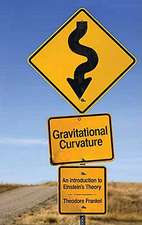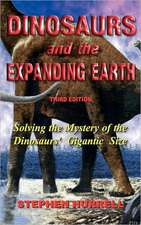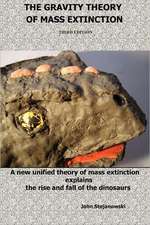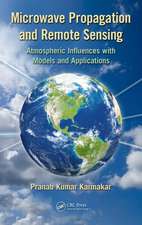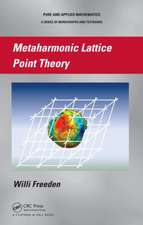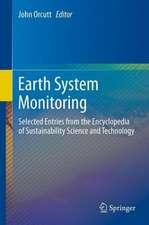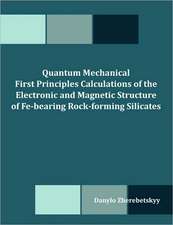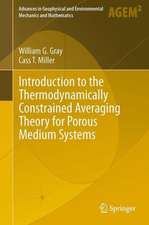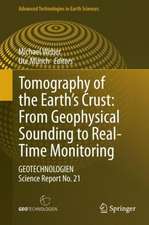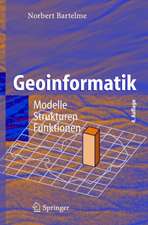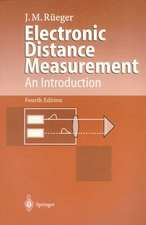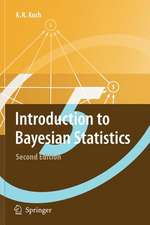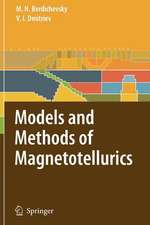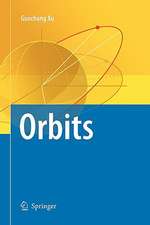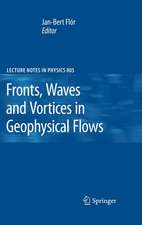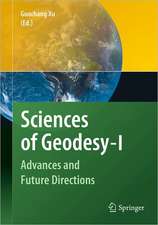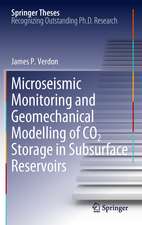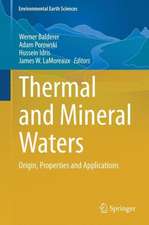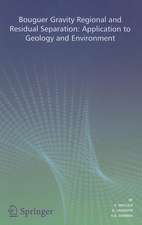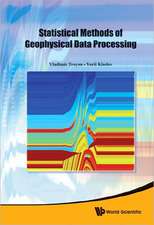Gravity Inversion and Integration: Theory and Applications in Geodesy and Geophysics
Autor Lars E. Sjöberg, Mohammad Bagherbandien Limba Engleză Hardback – 2 mai 2017
This book contains theory and applications of gravity both for physical geodesy and geophysics. It identifies classical and modern topics for studying the Earth. Worked-out examples illustrate basic but important concepts of the Earth’s gravity field. In addition, coverage details the Geodetic Reference System 1980, a versatile tool in most applications of gravity data.
The authors first introduce the necessary mathematics. They then review classic physical geodesy, including its integral formulas, height systems and their determinations. The next chapter presents modern physical geodesy starting with the original concepts of M.S. Molodensky. A major part of this chapter is a variety of modifying Stokes’ formula for geoid computation by combining terrestrial gravity data and an Earth Gravitational Model.
Coverage continues with a discussion that compares today’s methods for modifying Stokes’ formulas for geoid and quasigeoid determination, a description of several modern tools in physical geodesy, and a review of methods for gravity inversion as well as analyses for temporal changes of the gravity field.
This book aims to broaden the view of scientists and students in geodesy and geophysics. With a focus on theory, it provides basic and some in-depth knowledge about the field from a geodesist’s perspective.
| Toate formatele și edițiile | Preț | Express |
|---|---|---|
| Paperback (1) | 466.99 lei 38-44 zile | |
| Springer International Publishing – 21 iul 2018 | 466.99 lei 38-44 zile | |
| Hardback (1) | 529.21 lei 38-44 zile | |
| Springer International Publishing – 2 mai 2017 | 529.21 lei 38-44 zile |
Preț: 529.21 lei
Preț vechi: 653.35 lei
-19% Nou
Puncte Express: 794
Preț estimativ în valută:
101.26€ • 106.01$ • 83.79£
101.26€ • 106.01$ • 83.79£
Carte tipărită la comandă
Livrare economică 02-08 aprilie
Preluare comenzi: 021 569.72.76
Specificații
ISBN-13: 9783319502977
ISBN-10: 3319502972
Pagini: 387
Ilustrații: XIV, 383 p. 82 illus., 54 illus. in color.
Dimensiuni: 155 x 235 x 28 mm
Greutate: 0.86 kg
Ediția:1st ed. 2017
Editura: Springer International Publishing
Colecția Springer
Locul publicării:Cham, Switzerland
ISBN-10: 3319502972
Pagini: 387
Ilustrații: XIV, 383 p. 82 illus., 54 illus. in color.
Dimensiuni: 155 x 235 x 28 mm
Greutate: 0.86 kg
Ediția:1st ed. 2017
Editura: Springer International Publishing
Colecția Springer
Locul publicării:Cham, Switzerland
Cuprins
Foreword.- 1. Introduction.- 2. Basic mathematics.- 3. Classical physical geodesy.- 4. Modern physical geodesy.- 5. Corrections in geoid determination.- 6. Applications and comparisons of LSMSA and RCR.- 7. Further tools in physical geodesy.- 8. Gravity inversion.- Index.
Notă biografică
Lars E. Sjöberg has been a professor of Geodesy at Sweden’s Royal Institute of Technology (KTH) for 30 years and has been the chair of 4 IAG Special Study Groups on gravity and geodynamics. He has been the Editor-in-Chief of the Journal of Geodetic Science since it was founded in 2011. He developed the unique KTH method with additive corrections using least squares by spectral weighting of observables, as well as a method for estimating Moho depth and density contrast from gravity. He leads several international geoid schools on the KTH method, and has published more than 330 articles, mostly in peer-reviewed journals.
Mohammad Bagherbandi is senior researcher at the Royal Institute of Technology (KTH) and a Professor at the University of Gävle, Sweden. His professional interests include Physical Geodesy, Geodynamics and Satellite Gravimetry. He received his Ph.D. in Geodesy from the KTH in 2011, and became an instructor at the Institute in 2013. His background is in Land Surveying Engineering, and he completed a Master of Science in Geodesy in Iran. He is currently pursuing multidisciplinary research combining directions such as Geophysics, Geodesy and Land Surveying (applied geodesy). His main research interest is in developing and interconnecting Geodesy and Geophysics.
Textul de pe ultima copertă
This book contains theory and applications of gravity both for physical geodesy and geophysics. It identifies classical and modern topics for studying the Earth. Worked-out examples illustrate basic but important concepts of the Earth’s gravity field. In addition, coverage details the Geodetic Reference System 1980, a versatile tool in most applications of gravity data.
The authors first introduce the necessary mathematics. They then review classic physical geodesy, including its integral formulas, height systems and their determinations. The next chapter presents modern physical geodesy starting with the original concepts of M.S. Molodensky. A major part of this chapter is a variety of modifying Stokes’ formula for geoid computation by combining terrestrial gravity data and an Earth Gravitational Model.
Coverage continues with a discussion that compares today’s methods for modifying Stokes’ formulas for geoid and quasigeoid determination, a description of several modern tools in physical geodesy, and a review of methods for gravity inversion as well as analyses for temporal changes of the gravity field.
This book aims to broaden the view of scientists and students in geodesy and geophysics. With a focus on theory, it provides basic and some in-depth knowledge about the field from a geodesist’s perspective.
Caracteristici
Details theory and applications of gravity both for physical geodesy and geophysics Includes worked examples throughout the book Identifies classical and modern topics for studying the Earth Includes supplementary material: sn.pub/extras


